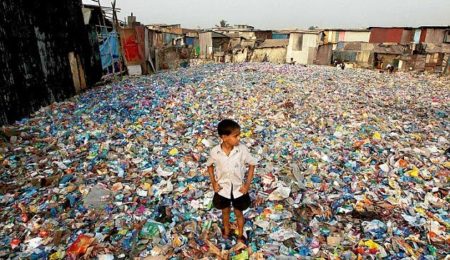Revolutionary Breakthrough As Indian Scientists Converted Plastic Wastes Into High-grade Petrol And Diesel

Soon, India will be able to convert their plastic waste into diesel and petrol. This is thanks to a great breakthrough by Dehradun-based Indian Institute of Petroleum (IIP) researchers. The IIP, which is a constituent lab of the Scientific and Industrial Research Council, has developed technology that converts plastic waste to petroleum products. Green technology is currently only available in Japan, Germany and US. The UK and Australia are still trying to work on it.
This technology uses a combination of suitable catalysts to convert plastic into diesel, gasoline or aromatics. LPG is also produced as a by-product. The IIP Director, M.O Garg says that the fuels obtained (diesel and gasoline) through the process the technology employs, are of very high quality and meet Euro-III standards. Almost nil sulphur content is used and the diesel obtained by using this process is of very high quality. It will also vastly reduce engine emissions according to officials. If an engine is run on this fuel, the vehicle will be able to run for at least two more kilometers per litre than when it uses ordinary diesel.[quote_box_center]”We have applied for a patent. We developed this after nearly a decade of intensive research. We are now planning to commercialize the technology although we are still engaged in the process of engineering to design heavy machinery and processes,” Garg told Mail Today. “The current prices of petrol, which is derived from crude hydrocarbons, range between Rs 70 to Rs 80 per litre. Petrol in this case costs Rs 30 to Rs 40 per litre, inclusive of the cost of plant, operations, manpower and land cost. There is a mammoth amount of solid waste generated in the country. It could be procured at a minuscule cost.”[/quote_box_center]This fuel will be ideal for users like state road corporations, railways and the defense establishment. As long as the effective implementation and enforcement of hazardous wastes (management and handling)Rules of 1989 is absent, handling of plastic waste in the country will continuously be a major challenge. If this technology is commercially implemented, India’s hazardous plastic waste problem will considerably be addressed.
[Source:Â www.dailymail.co.uk]
























